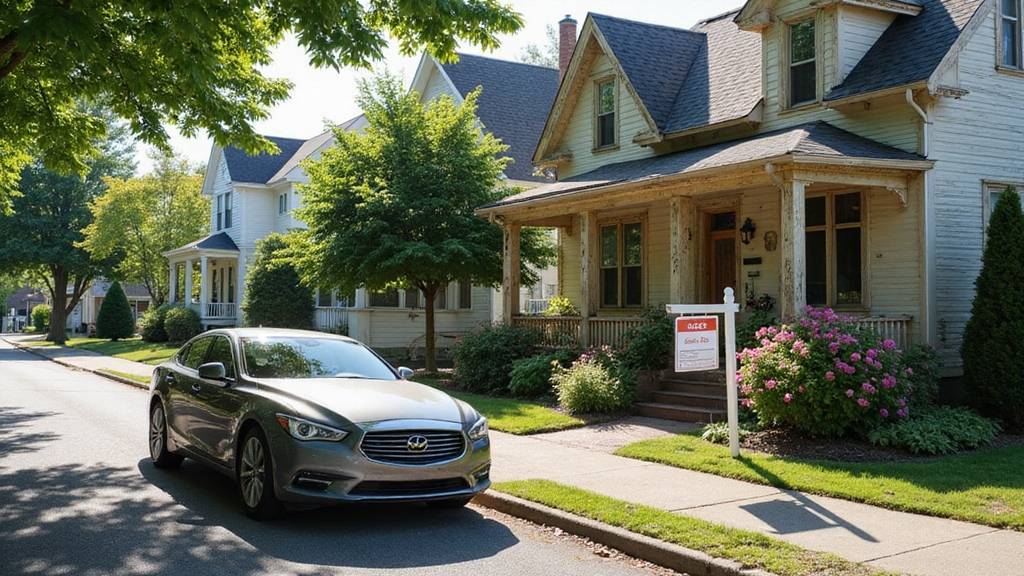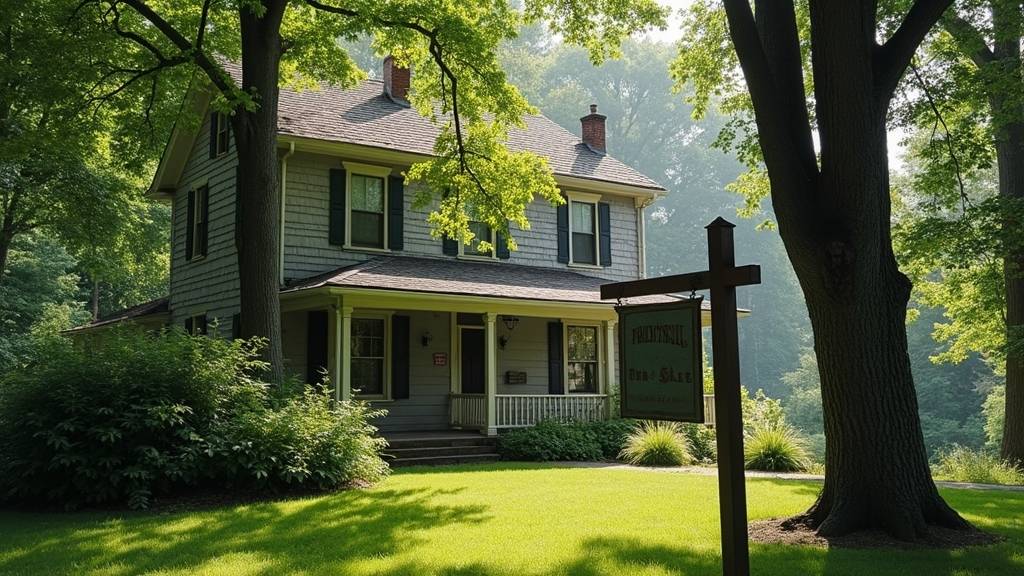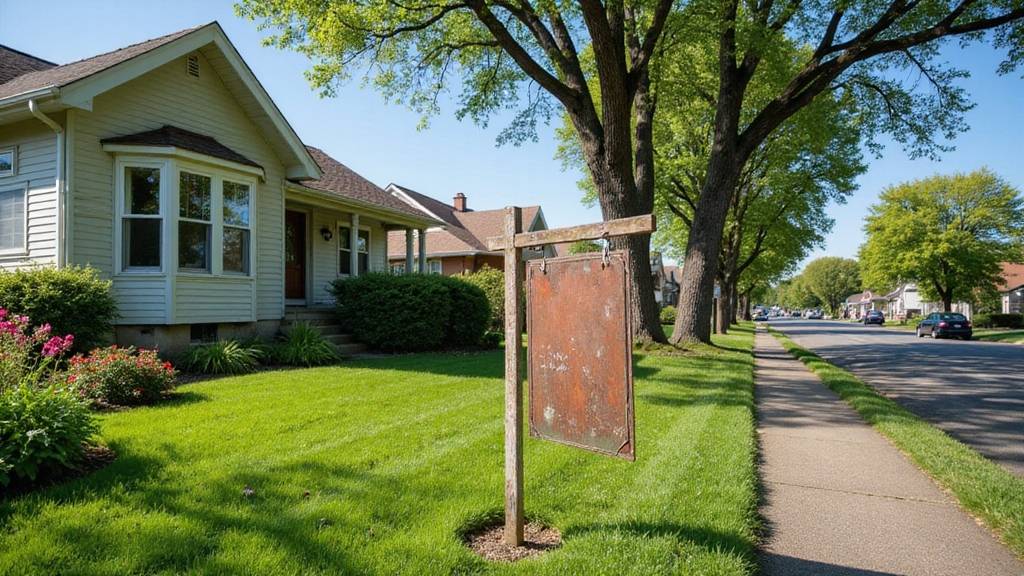Selling a house in probate is not like a normal home sale. Probate sales involve courts, legal steps, and extra paperwork. Many families find the process slow and confusing.
Delays can happen at every stage. Paperwork errors, court backlogs, and disagreements among heirs can cause long waits. This can add stress during an already tough time. It usually takes 6 to 12 months to sell a house in probate, much longer than a regular sale.
However, understanding the process and knowing what to expect can help you move forward. With good planning, you can avoid common mistakes and speed things up. This blog will guide you through probate home sales so you can sell faster and with less stress.
Key Takeaways
- Selling a house in probate typically takes 6 to 18 months, depending on whether there is a will and the complexity of the estate.
- Court approval is required before listing or accepting offers, and obtaining this can take several weeks to a few months.
- Legal disputes, incomplete paperwork, or disputes among heirs can significantly extend the probate sale timeline.
- Accurate property valuation, timely payment of estate debts, and clear documentation help prevent delays and speed up the process.
- Closing and distributing sale proceeds cannot occur until all estate debts, taxes, and court requirements are fully resolved.
Understanding the Probate Process

The probate process is the legal way to transfer a deceased person’s property. It ensures the assets go to the right people. If you plan to sell a house in probate, you must follow these rules.
Probate verifies the will or decides who inherits if there is no will. The court checks the will’s validity and lists all heirs. If there is a dispute, the process can take longer. Additionally, property liens can complicate probate, requiring resolution before the sale can proceed.
The court also pays any debts and handles estate taxes. These steps can affect how much each heir receives. According to the American Bar Association, probate can last months or more than a year.
Key Steps Required Before Listing the Property
Before you list a probate property, you must secure court approval, which is a legal requirement in nearly every state. Accurate valuation through a certified appraisal ensures you meet both legal and market expectations, while resolving outstanding debts protects the estate from future claims. These foundational steps set the stage for a compliant and efficient sale.
Additionally, understanding the process of selling probate property can help streamline the sale and reduce potential delays. Proper preparation and adherence to legal procedures, such as conducting a thorough title search, can further facilitate a smooth transaction and avoid future complications.
Securing Probate Court Approval
Probate court approval is required before you can sell a property in probate. Without it, you cannot legally list the home. The court must grant permission first.
To get approval, you need to file a petition with the probate court. The petition must explain your intent to sell the property. You must include documents showing you have notified all heirs.
You also need to prove that all estate taxes are handled. Property inspections must be completed and reported to the court. These inspections confirm the home’s condition and protect against future disputes.
If all requirements are met, the court will issue an order allowing the sale. This process can take several weeks. Delays may occur if paperwork is incomplete or the court is busy.
Appraising Estate Property Value
Appraising estate property value means finding out what the property is worth. You must get a licensed real estate appraiser to do this. The appraisal is required before you can list the property for sale.
The appraiser will visit the property and look at its condition. He or she will also compare it to similar properties sold recently. The final report gives an unbiased value for the property.
If the property is complex, the appraisal may take longer. Most probate courts need this report for tax and legal reasons. Accurate appraisal helps prevent arguments among heirs.
Resolving Outstanding Liabilities
You must clear all unpaid debts before listing the property. Outstanding liabilities can cause legal problems and slow down the process. If you ignore these, you risk longer delays.
First, pay any estate taxes due at the federal or state level. These taxes are usually due within nine months. Unpaid taxes may result in a lien on the property.
Next, pay off all debts such as mortgages and utility bills. Settling these will prevent future claims against the estate. If any debts remain, it can lead to complications.
If heirs disagree, resolve disputes early. Mediate and document any agreements about ownership or sale proceeds. This prevents court cases and saves time.
Handling these steps early helps you list the property faster and avoid extra problems.
Timeline for Obtaining Probate Court Approval
You’ll need to file a probate petition with the court, which typically takes one to two weeks to process. Most courts schedule a hearing within four to eight weeks of your filing, depending on local caseloads. Once approved, the court issues a grant of authority that legally empowers you to act on behalf of the estate.
Ensuring all necessary proper documentation is submitted correctly can help prevent delays in the process. Additionally, understanding the property classification and complying with legal requirements can streamline the approval timeline.
Filing Probate Petition
To sell a home during probate, you must first file a probate petition with the court. This step officially begins the estate administration process. The filing gives you legal authority to manage the estate.
Gather key documents like the will, death certificate, and financial records. If the decedent had estate plans or owed taxes, include those details. These documents ensure a complete and accurate petition.
After filing, the court will review your petition and documents. If paperwork is correct, the court grants you authority over estate assets. This process may take from two weeks to several months, depending on court delays.
Court Hearing Scheduling
After you file a probate petition, your court hearing is usually scheduled in four to eight weeks. The exact timing depends on how busy your local court is. Some counties may take longer if they have many cases.
You must pay attention to real estate taxes during this waiting period. If taxes are not paid, the sale of the property can be delayed. Keeping taxes current helps avoid complications.
The court must approve the executor or administrator before you can sell any property. If you miss court deadlines or forget documents, your hearing could be postponed. Always check your court’s website for updates and document requirements.
Staying organized helps prevent delays. If you track important dates and paperwork, you can keep the probate process on schedule. Being proactive is the best way to avoid setbacks.
Grant of Authority
The Grant of Authority is a legal document that lets the executor manage the estate. You cannot sell or transfer property without this grant. Courts usually issue it within two to six weeks after your hearing.
The court first reviews your petition and documents. If everything is correct, the judge signs the Grant of Authority. You can then access and manage all estate assets.
You must follow all probate laws when acting for the estate. Executors are responsible for understanding any tax effects of their actions. Careful planning can help avoid unnecessary delays.
Impact of Will Versus Intestacy on Sale Duration
The presence of a will often shortens the time needed to sell a house after someone dies. A will clearly shows who gets what, which speeds up decisions and paperwork. If there is no will, the court must find and confirm the heirs, which slows everything down.
Additionally, legal risks and negotiations can arise if the estate is not handled properly, further extending the process. Managing probate procedures efficiently can also help reduce delays and facilitate a quicker sale. With a will, estate taxes are calculated sooner because the beneficiaries are named. The process faces fewer disagreements since the will spells out everyone’s rights.
If a person dies without a will, the state decides who inherits, which can cause more arguments and delays. Intestacy usually takes longer, often up to 18 months, while probate with a will may finish in 6 to 9 months. If legal challenges arise, the process without a will can take even longer. Beneficiaries must wait while the court sorts out who is entitled to what.
Notifying Heirs and Interested Parties

Notifying heirs and interested parties is a key step in probate. It lets everyone with a possible claim know about the property. Courts require this before any major decisions like selling the house.
If you delay notification, you risk legal problems or sale disputes. These issues can delay or even reverse a home sale. Timely notice helps prevent these setbacks.
Prompt notification reduces the chance of objections or court delays. It also shows all heirs what is happening and their rights. Most courts will not approve a sale without proof of notification.
Acting quickly with notifications can speed up the whole probate process. If you notify everyone early, you can avoid many common problems. This step keeps things moving and helps you meet all legal requirements. Additionally, understanding and managing building code violations during the process can prevent future legal complications that might arise after the sale.
Assessing the Property’s Condition and Value
You must check the property’s condition and value before selling a house in probate. A full inspection will show any repairs or upgrades needed. If the property is in poor shape, you may have to fix issues before selling. Avoid unnecessary repairs to save costs and prevent delays.
Accurate records of the property’s state are important for estate planning. These records can affect how assets are split and taxes owed. If you skip this step, you may face problems later. A professional appraiser should set the home’s value. The appraiser will use local data and recent sales to find a fair price.
This helps avoid pricing the property too high or too low. Proper assessment can prevent delays during probate. Clear information sets expectations for everyone involved. Understanding legal requirements and documentation can streamline the sale process and reduce potential issues. If you follow these steps, the process will likely go more smoothly.
Choosing the Right Real Estate Agent

You need a real estate agent with probate experience. An expert in probate can handle legal steps and talk with attorneys. If you choose the right agent, the process will be smoother and faster. Additionally, agents who understand cash buyer advantages can help expedite the sale process further. Agents with probate experience help homes sell about 15% faster. Proper staging and open houses can also attract more buyers.
A skilled agent knows how to make your property stand out. Furthermore, leveraging market analysis and pricing strategies can significantly reduce the time your property spends on the market. If you want a good result, ask about the agent’s track record in probate sales. Always check for client reviews and how quickly sales close. Make sure the agent communicates well with lawyers and updates you often.
Listing the Property During Probate
When you’re ready to list a probate property, you need to secure court approval before putting it on the market. The timing and terms of this approval can directly influence which marketing strategies you use and how quickly you attract buyers. Understanding these requirements up front helps you maximize exposure and avoid costly delays.
Additionally, monitoring market conditions such as local demand and inventory levels can help you determine the best timing for listing to ensure a faster sale. Knowing the benefits of selling house fast in New Market, VA, such as guaranteed sales and quick closings, can also influence your decision to expedite the process when possible.
Court Approval Requirements
Selling a property in probate usually needs court approval. The court checks that the sale is fair and helps all heirs. Approval is especially important if heirs disagree or taxes are owed.
If you want to sell, you must file a petition with the court. The petition should include property details, the sale price, and reasons for selling. The court will use this information to review your request.
A judge reviews the petition and listens to any objections. If everything is in order, the court will approve the sale. The process often takes four to eight weeks, but disputes or tax issues may cause delays.
Marketing Strategies Impact
Effective marketing strategies impact how quickly and profitably a property sells after court approval. Good marketing shortens the timeline and can increase the sale price. A clear plan helps attract more buyers.
You should list the home on several major websites. High-quality photos and detailed descriptions draw serious interest. This approach gets more eyes on the property.
If you schedule a property inspection early, buyers feel more confident about the home’s condition. Advance inspections can prevent delays during negotiations. Honest disclosures make the sale smoother.
Some buyers consider estate tax costs before making an offer. If you share this information up front, you avoid surprises later. Data shows proactive marketing and clear communication help homes sell up to 30% faster in probate.
A real estate agent with probate experience can increase the property’s exposure. Agents also help manage questions from interested buyers. Choosing the right agent often leads to better offers.
Reviewing Offers and Accepting a Buyer
Once your probate property is listed, you will likely get several offers. Each offer needs careful review to follow legal rules and protect heirs. You must check price, buyer qualifications, and any conditions in the offers.
You should compare each offer to recent sales and appraisals. This step helps you confirm that the offer matches fair market value. If offers are too low, you may consider waiting for better ones.
You need to check all contingencies, such as financing or home inspections. These can delay or stop the sale. If an offer has too many conditions, it may not be the best choice.
Always ask buyers for proof of funds or a pre-approval letter. This shows they can pay for the property. If a buyer cannot provide this, you may reject the offer.
If you use clear criteria to review offers, you reduce the chance of problems. Careful review helps you meet legal requirements and protect the estate. Always keep records of your decision process to avoid disputes.
Navigating Court Confirmation of Sale
Once you accept an offer, you’ll need to secure court approval before the sale can move forward, which typically takes 30 to 45 days depending on your local court’s schedule. During this period, you’ll follow a series of required steps, including filing the petition for confirmation and notifying interested parties. Understanding each stage and its timeline helps you foresee delays and keep the process on track.
Timeline for Court Approval
Court approval for a probate property sale usually takes 30 to 90 days. This timeline depends on the court’s schedule and workload. Sellers and buyers should plan for possible delays.
Property taxes and maintenance must be handled during this waiting period. Title transfer cannot happen before the court confirms the sale. This adds extra time and uncertainty to the process.
Several factors can slow down court approval. Overbooked court calendars often create delays. Missing documents or mistakes in paperwork can also stall the process.
If heirs or creditors raise objections, the court may schedule more hearings. This can make the approval process take longer. Careful preparation can help avoid some delays.
Steps in Confirmation Process
The confirmation process starts after a buyer makes an acceptable offer on a probate property. The court requires a petition for sale approval, which must include recent real estate appraisals. These documents help the court confirm the sale price is fair and protects the interests of heirs.
The court sets a hearing date, usually within 30 to 60 days, to review the sale. If there are estate tax concerns, you must address them at this stage. Overbidders can submit higher offers during the hearing, which could increase the final sale price.
Every step follows probate laws and ensures transparency. If each requirement is met, the court can approve the sale. This process helps ensure a fair outcome for all parties.
Handling Potential Delays and Objections
Delays and objections often happen during the probate home sale process. Probate courts check every detail closely, which can slow things down. If issues come up, expect the process to take longer.
Estate taxes must be calculated and paid before any assets transfer. Large estates may take more time to resolve tax matters. If taxes are not settled, property transfers cannot move forward. Estate taxes must be settled before assets can transfer, and larger estates often face longer delays due to complex tax matters.
Beneficiaries may disagree about the home’s value or sale terms. These disputes can lead to court hearings or require a mediator. If disagreements arise, expect extra delays.
Probate fraud is a serious concern. Courts will fully investigate any signs of fraud or mismanagement. If fraud is suspected, the sale process may stop until the issue is resolved.
Closing the Sale and Distributing Proceeds
After the probate court settles any issues, you can close the house sale. The buyer gets the deed, and the sale money goes into the estate account. You cannot distribute proceeds before all taxes, debts, and costs are paid.
Always deduct estate taxes, debts, and administrative costs first. If heirs disagree, the court may order mediation or more hearings. You must follow the court’s instructions exactly to avoid legal trouble.
Check the table below for important steps and what to consider at each stage. This helps ensure you meet all legal requirements. Always confirm details before moving to the next step.
Factors That Can Accelerate or Delay the Process
Several factors can speed up or slow down probate. These factors directly affect how soon you can sell a house in probate. If you understand them, you can plan better and avoid surprises.
Court schedules and local rules can add months to the process. If your area has strict probate laws, proceedings may take longer. Heavy court caseloads cause further delays.
Missing documents or unclear titles can stall progress. If the will is missing or paperwork is incomplete, the sale cannot move forward. Proper documentation speeds things up.
Disagreements among heirs can lead to legal disputes. If beneficiaries do not cooperate, the process may slow down. Consensus among heirs helps avoid delays.
Tips for Streamlining a Probate Property Sale
To sell a probate property quickly, use a clear and active plan. Gather all key documents, like the will and letters testamentary, to prove your authority. If you prepare early, you can avoid many common delays.
A probate attorney can help guide you through legal steps. Legal advice often leads to better sales outcomes. If you hire an expert early, you can solve problems before they grow.
Get a professional appraisal to set a fair price. Check for title issues and fix them before listing the home. If you resolve these matters first, closing will move faster.
Choose a real estate agent who knows probate sales. Estate agents with experience can make showings and offers go smoothly. If you work with specialists, you will save time.
Keep clear communication with heirs and creditors. If you address concerns quickly, you can prevent disputes. Staying organized and proactive helps shorten the probate process and makes the sale easier.
Conclusion
Selling a house in probate usually takes between 6 to 12 months. If you miss deadlines or face objections from heirs, the process can take longer. Careful preparation and timely action can help you avoid delays.
If you want to sell quickly, cash buyers can be a great option. When you choose a cash offer, you may skip many of the usual obstacles. We buy houses for cash, even those in probate.
If you are ready to move forward, we can help. We at Align Real Estate Solutions make the probate selling process simple and fast. Contact us today to learn how we can help you close smoothly.
Author
-

Zach Koops is co-founder and Real Estate Success Manager at Align Real Estate Solutions, serving homeowners across Virginia since 2024. With a passion for real estate and a heart for people, Zach has built his career around helping sellers navigate tough situations—foreclosure, inheritance, relocation, repair-overload—with clarity and compassion. He’s known for being straightforward, steady under pressure, and deeply invested in relationships. Outside of work, he spends his time as a husband and father, enjoys the outdoors in Shenandoah Valley, loves singing on stage, and constantly seeks growth through reading and new experiences.









